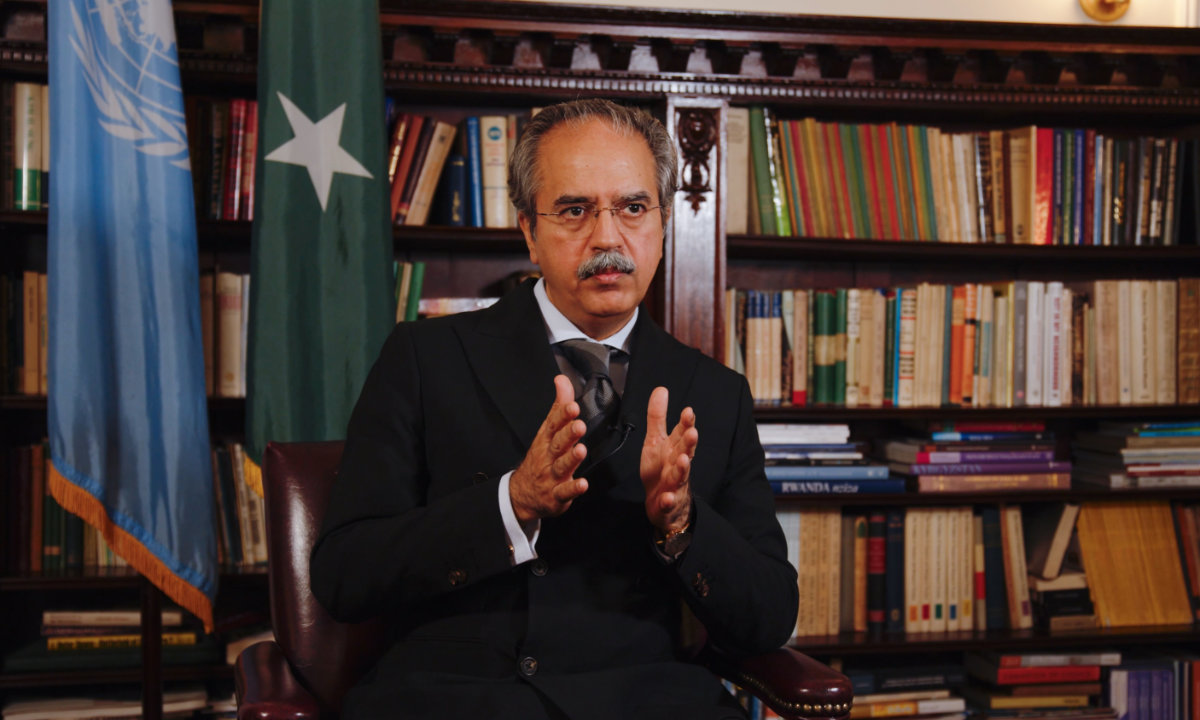THE HAGUE: South Africa on Tuesday urged the International Court of Justice (ICJ) to issue a non-binding legal opinion that the Israeli occupation of Palestinian territories is illegal, arguing it would help efforts to reach a settlement.
Representatives of South Africa opened the second day of hearings at the ICJ, also known as the World Court, in the Hague.
The hearing follows a request by the UN General Assembly for an advisory, or non-binding, opinion on the occupation in 2022. More than 50 states will present arguments until Feb. 26.
Alongside the South African legal team, representatives from Algeria, Saudi Arabia, the Netherlands, Bangladesh, and Belgium also presented preliminary arguments.
This is said to be the largest case at the ICJ and at least three international organizations are also slated to address the judges at the UN's top court until next week. A nonbinding legal opinion is anticipated following months of judge deliberations.
On Monday, Palestinian representatives articulated their stance on the legal repercussions of Israel's occupation of the West Bank, East Jerusalem, and Gaza Strip. They asserted that the occupation is illegal and must cease immediately, unconditionally, and entirely.
Israel has abstained from attending the hearings but submitted a five-page written statement expressing concerns that an advisory opinion would hinder attempts to resolve the conflict, citing prejudiced questions posed by the UN General Assembly.
SAUDI ARABIA CONDEMNS ISRAEL'S ACTION
Ziad Al-Atiyah, Saudi Arabia's ambassador to the Netherlands, has strongly criticized Israel for its actions in the occupied Palestinian territories, stating that they are legally indefensible.
Al-Atiyah emphasized the importance of holding Israel accountable for ignoring international law, particularly regarding its treatment of civilians in Gaza and its continued impunity.
Saudi Arabia expressed deep concern over the killing of civilians and rejected Israel's argument of self-defense, stating that depriving Palestinians of basic means of survival is unjustifiable.
Al-Atiyah accused Israel of dehumanizing Palestinians and committing genocide against them, calling for the international community to take action.
Regarding the jurisdiction of the court, Al-Atiyah asserted that the arguments against its jurisdiction lack merit, urging the court to issue an opinion on the matter.
Israel's ongoing disregard for ceasefire calls and provisional measures, as well as its expansion of illegal settlements and expulsion of Palestinians from their homes, were condemned by Saudi Arabia.
The Kingdom highlighted Israel's violations of international obligations, including ignoring UN resolutions condemning its conduct and preventing Palestinians from exercising their right to self-defense.
Israel's intentions to maintain and expand illegal settlements, as evidenced by its 2018 Basic Law declaring Jerusalem as its capital, were also criticized for undermining Palestinian self-determination.
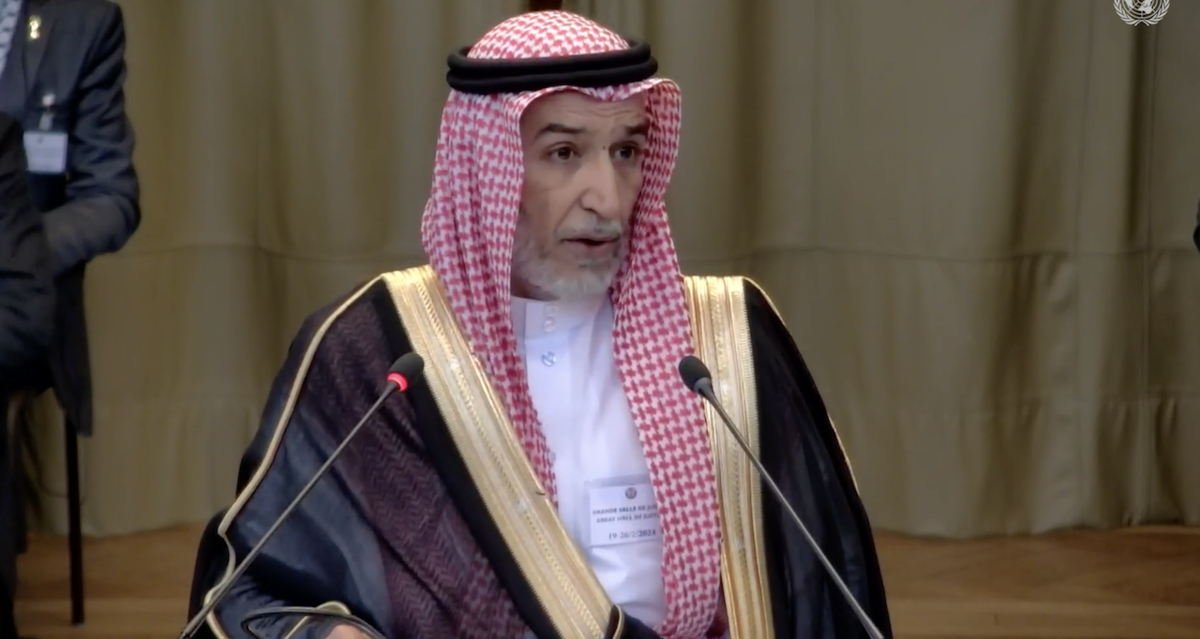
ALGERIA ADVOCATES AGAINST PROLONGED ISRAELI OCCUPATION
Algeria's legal representative, Ahmed Laraba, took the floor at the ICJ to present his country's stance on the enduring occupation of Palestinian territories. In his address, Laraba highlighted the intricacies surrounding the concept of prolonged occupation, shedding light on its legal foundations and historical context.
Referencing Article 42 of The Hague Convention of 1907, Laraba underscored the undisputed basis of the notion of occupation, as acknowledged by the court in a previous opinion. He emphasized the temporary nature of the occupation, originally conceived to manage post-conflict situations and facilitate peace agreements.
Laraba pointed out the discrepancy between the intended temporary regime and the reality of a prolonged occupation, noting that the drafters of the time did not foresee a peaceful coexistence between the occupier and the occupied. This incongruity underscores the complexities and challenges inherent in addressing the prolonged occupation of Palestinian territories.
Algeria's intervention at the ICJ serves to advocate for a comprehensive understanding of the legal, historical, and humanitarian dimensions of the occupation issue. Laraba's arguments contribute to the ongoing discourse surrounding the quest for justice and resolution in the Israeli-Palestinian conflict.
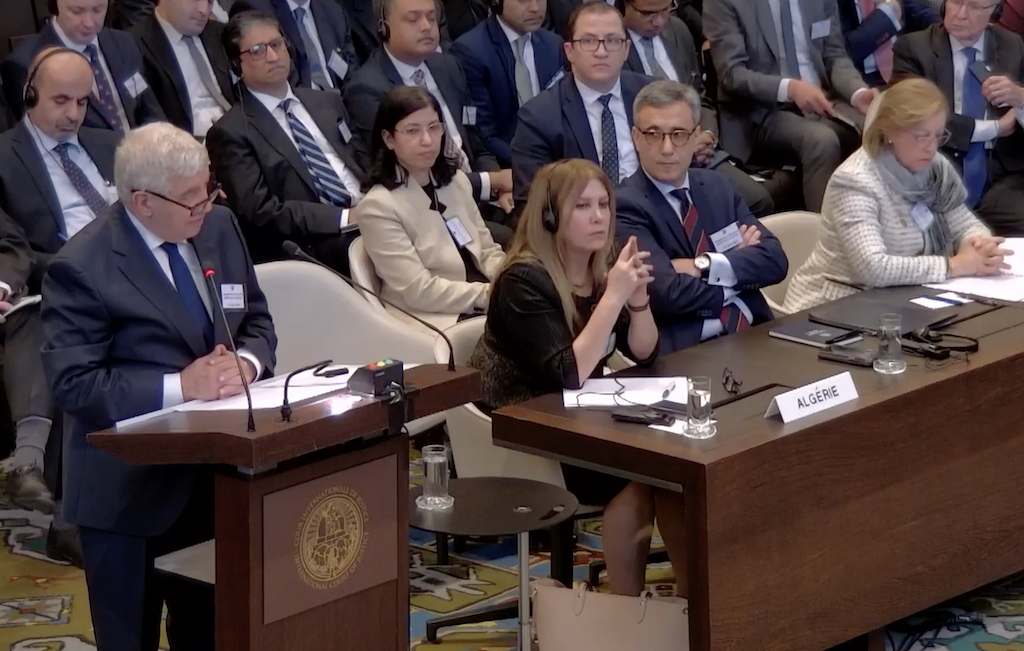
SOUTH AFRICA SHIFTS FOCUS TO PALESTINIAN RIGHTS
Pieter Andreas Stemmet, Acting Chief State Law Adviser at the Department of International Relations and Cooperation, announced South Africa's commitment to advocating for the Palestinian people's right to self-determination.
Stemmet emphasized that the UN has repeatedly recognized the inalienable right of Palestinians to self-determination. He condemned Israel's expansion of settlement activity, stating that it violates Article 49 of the Fourth Geneva Convention, to which Israel is a signatory.
In addressing concerns about potential apartheid in Israel, Stemmet referenced the Namibia vs. South Africa case, where the court ruled that race-based exceptions and limitations constitute a denial of fundamental rights and violate the principles of the UN Charter.
Stemmet underscored the well-documented extent of Israel's violations and reiterated that the prohibition of apartheid applies universally, including to Israel.
Drawing parallels to South Africa's illegal presence in Namibia, Stemmet called for attention to the legal consequences of Israel's ongoing occupation of Palestinian territories, including East Jerusalem.
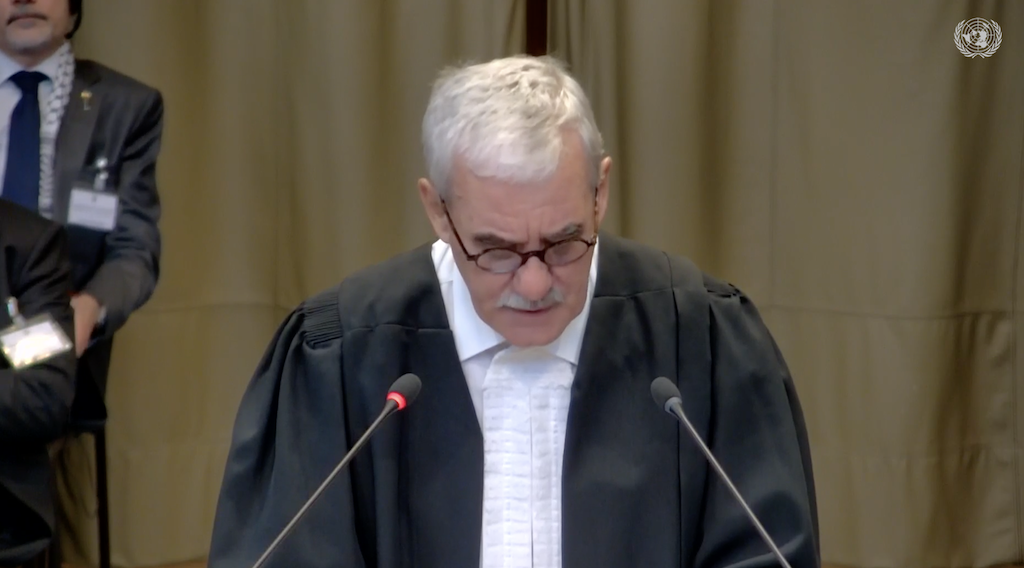
South Africa's Ambassador to The Netherlands Vusimuzi Madonsela urged for an end to Israel's violations against Palestinian territories, emphasizing the critical importance of this advisory opinion for Palestinians.
Madonsela highlighted the prolonged occupation, spanning over 50 years, conducted in defiance of international law with little international intervention.
He questioned when Israel's impunity for rights violations and breaches of international norms would cease, particularly amidst ongoing attacks on Gaza and Israel's disregard for legal orders, indicating its belief in unrestricted actions against Palestinians.
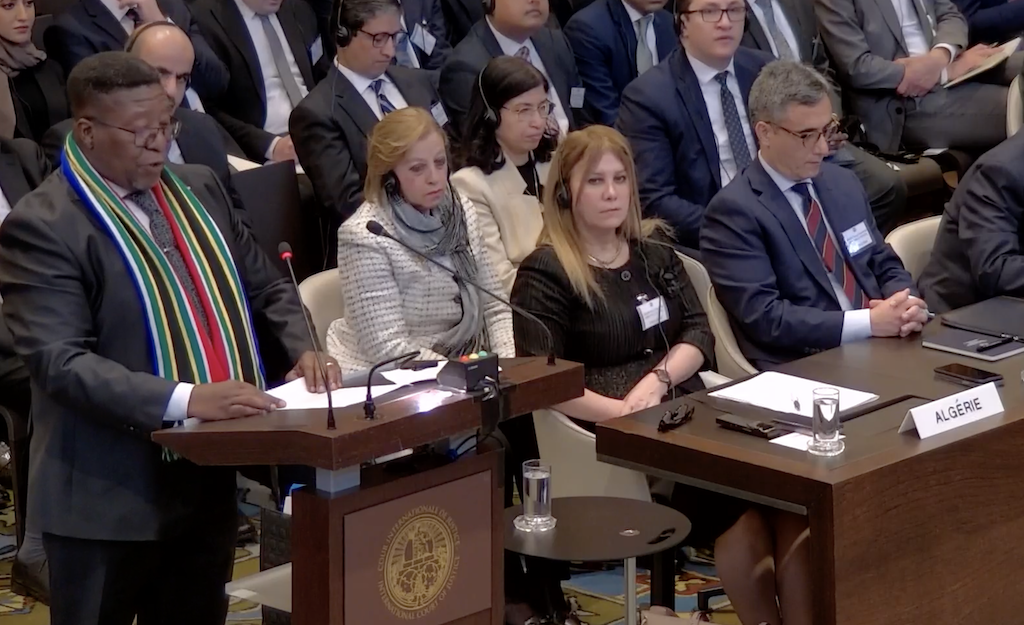
* With Reuters














